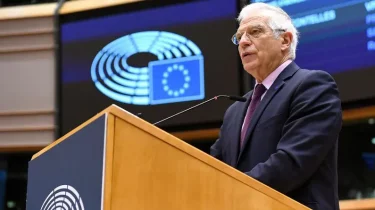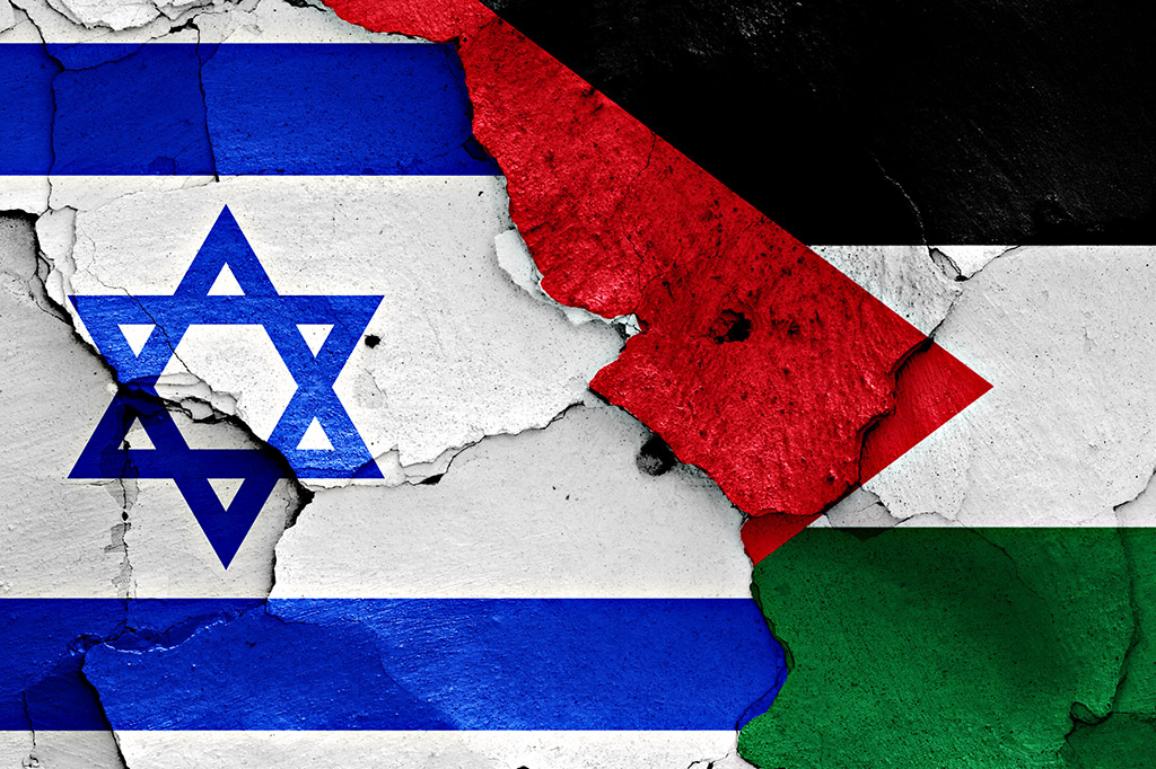The European Union’s plan for resolving the Israeli-Palestinian conflict: charting a path to peace

The European Union has developed a ten-point plan to achieve a “durable and thorough and all-encompassing resolution to the Israeli-Palestinian conflict. This information was published in the publication Euractiv and then in European Pravda. Journalists had access to a preliminary version of the document, which notes the importance of “preparing for comprehensive peace” in the plan’s introduction.
This paper delineates a sequence of measures that hold the promise of resolving the Gaza Strip conflict, establishing an autonomous Palestinian state, fostering harmonious relations between Israel and the Arab nations, and guaranteeing enduring stability in the area.
Preliminary peace summit: EU plan for an autonomous Palestinian State and normalisation of relations with Israel
As per the proposed plan, the forthcoming peace process should culminate in the creation of an autonomous Palestinian state coexisting with Israel, and the achievement of “complete normalization” in relations between Israel and the Arab world.
The EU plan emphasizes the need for Palestinians to explore new political alternatives to Hamas, while also stressing the importance of Israel’s commitment to actively engage in constructive negotiations geared towards achieving a two-state solution.
At the core of the suggested EU strategy lies the organization of a “Preliminary Peace Summit,” with active participation from the European Union, the United States, Egypt, Jordan, Saudi Arabia, the Arab League, and the United Nations.During this conference, ongoing dialogues will be maintained between Israeli and Palestinian officials, who are referred to as the “parties to the conflict.” Importantly, this communication will be sustained throughout every stage of the process and at all times, without necessitating initial direct interaction between them.
Participants in this conference will uphold continuous communication with Israeli and Palestinian officials, collectively referred to as the “conflict parties.” This dialogue will persist throughout each phase of the process, eliminating the initial requirement of compelling them to directly engage with each other.
The Palestinian Authority (PA) and the Palestine Liberation Organization (PLO) are designated to represent the Gaza Strip and the West Bank in the peace process, instead of Hamas.

A year of preparing for peace: The EU’s plan for a credible peace plan in the Middle East
The preparatory peace conference will have a full year to develop the fundamental principles of the peace plan, taking into account the perspectives of all stakeholders, UN resolutions, recommendations from the European Council, and insights from prior mediation efforts.
Once established, the plan will be presented to the “conflicting parties” and will serve as the foundation for final negotiation
“A crucial aspect of the peace proposal will involve the establishment of robust security measures designed to guarantee the security of both Israel and a prospective independent State of Palestine, contingent upon proposal underscores the significance of full diplomatic acknowledgment and the assimilation of both Israel and Palestine into the region.
Nevertheless, as highlighted by this source, the acceptance of these recommendations could prove challenging due to disparities among European Union member states.
The preliminary plan was unveiled in advance of an upcoming gathering of EU foreign ministers set for January 22, where they will deliberate on the Gaza situation.
Previously, German Foreign Minister Annalena Bärbock articulated her stance that the Gaza Strip and the West Bank should be under Palestinian control, and she endorsed the notion of establishing two autonomous states situated between Israel and Palestine.
The global community has consistently voiced the perspective that the outcome of the ongoing escalation should entail the creation of a globally acknowledged Palestinian state, a development that, in turn, could serve as a preventive measure against future violence.
